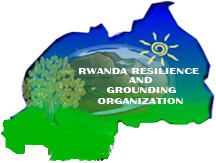
In 2016, from January till June, Rwanda Resilience and Grounding organization (RRGo) had introduced project with title: Building resilience on genocide survivors through CRM skills trainings in southern province of Rwanda. This project was targeting 4 Districts of Southern Province of Rwanda including HUYE,NYAMAGABE, NYARUGURU and NYANZA Districts. Trauma Resource Institute (TRI) funded the project. The project was aimed to increase resilience in genocide survivors and providing healing process of trauma and mental health problems. The project was targeting 40 to 50 genocide survivors trained by each district.
After the CRM skills training in each districts above, the trainees formed association called “ Resilience association”. It mean a group of genocide survivors who had trauma more than others and trained CRM skills and impact trauma healing and building resilience in them. Since then, we had 4 associations from different districts in southern province of Rwanda.
In the starting point, these beneficiaries were really traumatized and have more trauma symptoms including experiencing and flashbacks of traumatic events, depressions comorbidities, hypervigilants. … The recruitment of them were based on the information from districts levels and the list RRGO received from Director coordinator in charge of health and disease prevention from each district. After the project, they meet one time per month under their association and discussing on their resources and positive stories; they help each other. After three months, each group was visited by RRGO staff and does refresher trainings and asks them any challenges and opportunity in keeping using CRM skills in their daily like in rural area
Field Visits
On 30th April 2019 RRGO staff including Ernest RUKINGA and Samuel Habimana visited three groups of resilience association from Huye and Nyamagabe districts, Kamonyi. After 4 years of introducing CRM skills project on them, they are presenting image of recovery, reconfiguration and resilience from trauma. They had make cooperative and they are now making improve not only their mental health by also their social economic development. Resilience is strong when it is feeded and extended by using resource and resource intensification.
